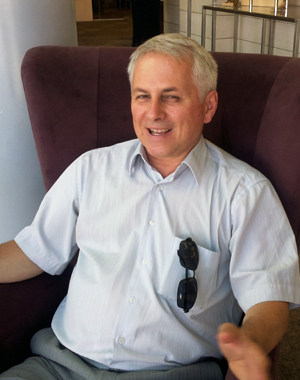"Southeast Europe and European integration: political, socio-economic and cultural aspects" - this is the motto at the 11th International Congress on East European Studies, held in Sofia from 31 August to 4 September. More about the history of the Congress we learn from prof. Alexander Kostov from the Institute for Balkan Studies with the Bulgarian Academy of Sciences:
 "The main organizer of the congress is the International Association for the Study of Southeast Europe. It was established in 1963 during the Cold War era, when, despite the complicated political situation, favorable conditions for scientific cooperation appeared. Then many research centers in the region started work. The Association studies history, literature, art, and societies from antiquity to the present day. The first congress of Balkan studies (as it is known in Bulgaria) was held in Sofia in 1966. Its following edition in the Bulgarian capital was in 1989. Traditionally it is organized on the Bulgarian side by the Institute for Balkan Studies with a Centre for Thracian Studies at BAS."
"The main organizer of the congress is the International Association for the Study of Southeast Europe. It was established in 1963 during the Cold War era, when, despite the complicated political situation, favorable conditions for scientific cooperation appeared. Then many research centers in the region started work. The Association studies history, literature, art, and societies from antiquity to the present day. The first congress of Balkan studies (as it is known in Bulgaria) was held in Sofia in 1966. Its following edition in the Bulgarian capital was in 1989. Traditionally it is organized on the Bulgarian side by the Institute for Balkan Studies with a Centre for Thracian Studies at BAS."
The 11th congress is attended by more than 250 specialists in various fields of studies from 26 countries. The worldwide academic elite in Southeast European Studies is now in Sofia. Of course, all countries from the region are represented as well as major research centers in Russia, USA, China, and Japan.
"This edition of the congress is dedicated to a very hot topic - The Balkans and European Integration, emphasizing not only the process of actual accession of the countries of the region to the European Union, but also integration understood in broader terms”, prof. Alexander Kostov explains. “We look into the participation of the Balkan countries into the European family in every way - cultural, political, economic, during the periods preceding the actual accession. There are 18 topics directly or indirectly associated with the motto of the forum. They relate to literature, linguistics, history, arts and media. Our session on economic issues drew huge interest - it was related to Russian and Chinese investment in Southeast Europe. There is a separate topic about NATO in the Balkans. "
There are many curious and little-known facts that scientists present at the forum. Prof. Alexander Novik from Russia told Radio Bulgaria more about one of his research:
"I am working on an article related to the medical practices of the Albanians who live in Ukraine. Their history is very interesting. At the end of the 16th century or the early 17th century, a large group of Albanians left their homes and settled in the region of Varna (eastern Bulgaria). They lived there for three centuries and during the Russo-Turkish War of 1877-1878, together with the Bulgarians and Gagauz people, they were forced to leave their villages. The Russian government allowed them to settle in the town of Odessa, where they live in four villages to this day, keeping their language and traditions, which are strongly influenced of course by Bulgarian language and traditions."
Examples of coexistence in the Balkans are numerous and no doubt they are particularly relevant in the modern severe refugee crisis. This topic has also found a place in the delivered talks.
English Rossitsa Petcova
Nearly two centuries ago, in the distant 1838, the Bessarabian Archbishop Dmitry Kishinev and Khotinsky consecrated the magnificent Orthodox church "The Holy Transfiguration of the Lord" , built with voluntary donations and labor by the Bulgarian..
Bringing youthful energy, colour and cheer to the Bulgarian National Radio studio, students from the Bulgarian Sunday School Dr Petar Beron arrived from Larnaca. The group from Cyprus — 16 pupils aged between 14 and 19 — is currently on a week-long..
At the outset of the war between Russia and Ukraine, the Bessarabian Bulgarians across all lands marked their national day with prayers for peace. Nearly four years on, burdened with even greater sorrow, they commemorate that special day scattered..
Minister of the Environment and Water Manol Genov has granted two centuries-old trees – each of which approximately 200 years old – protected status,..
Bulgarian compatriot Nina Vasileva-Zaneshev is one of the examples among the diaspora abroad, who give us confidence that wherever they..

+359 2 9336 661
